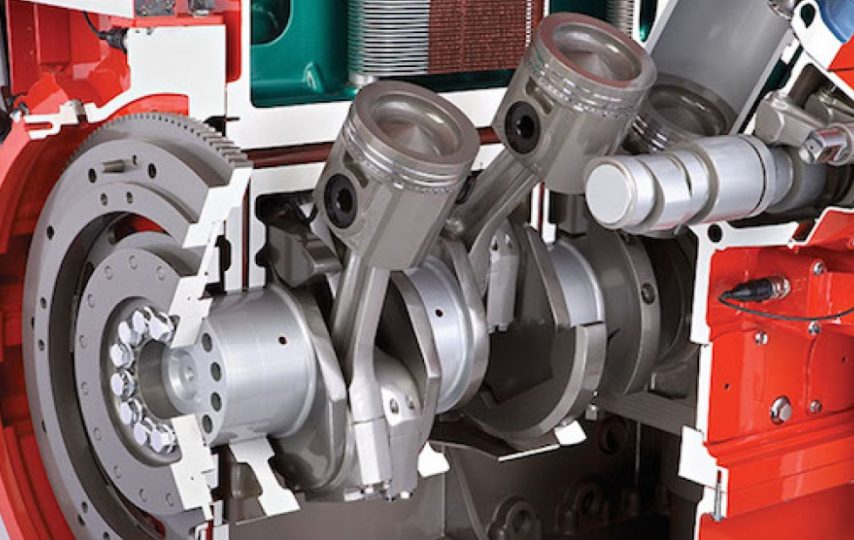Back in March, Martijn ten Brink, Mazda Motor Europe’s VP of deals and client support, touched off gearheads wherever when he told Dutch auto media source ZERauto that the Wankel rotational motor will get back to creation.
In particular, ten Brink said the turning could turn into a reach extender for an electric vehicle in 2019, and until further notice that is only talk. Mazda Motor of America will not talk about or affirm ten Brink’s remarks, letting us know just that “Mazda hasn’t declared a particular items including a rotating motor as of now. Mazda stays focused on dealing with rotating motor innovations, nonetheless.”
So what’s so extraordinary with regards to this amazing motor that is got everybody so invigorated for its return? Furthermore for what reason may things be distinctive this time around?
See parts: RX8 Parts
How It Works
A rotational motor is a barrel-formed gas powered motor that needs a considerable lot of the significant parts you’d find in a regular cylinder motor. For a certain something, there are no cylinders chugging all over. Rather, adjusted three-sided rotors—regularly two, yet some of the time one or three—twirl around a shaft through the empty barrel.
Fuel and air are siphoned into the spaces between the rotors’ sides and inside dividers of the barrel, where they light. The fast extension of detonating gases turns the rotors, hence creating power. The rotors satisfy similar errand as cylinders in a cylinder motor, yet with far less moving parts, making a rotational motor lighter and more modest than a cylinder motor of comparable relocation.
The essential plan is extremely old one. Felix Wankel himself was a German architect who thought of his adaptation of a revolving motor during the 1920s. Being occupied with warmongering in the interest of the Nazi party, be that as it may, he didn’t find the opportunity to foster his vision excessively far until 1951, when German automaker NSU welcomed him to plan a model.
Wankel’s mind boggling configuration really missed out to a less complex model created by engineer Hanns Dieter Paschke, whom NSU had additionally welcome to have a go at Wankel’s unique idea. Paschke’s is the motor Mazda would go to possess and support into the 21st century. Along these lines, the advanced Wankel isn’t exactly a Wankel.
The Setra gas cylinder scale is designed to weigh gas cylinders within 0,10% accuracy, in order to reduce gas replacements costs and the shutdown time.
Visit Link: Mazda Parts
Naming worries to the side, Wankel is the most well-known and fruitful revolving motor plan, and the main one to make it into large scale manufacturing. Back in the mid ’60s, NSU and Mazda had an agreeable, communitarian contest to sell the principal Wankel-fueled vehicle as they figured out the issues of the juvenile plan. NSU was quick to showcase in 1964, yet it annihilated its standing throughout the following decade as incessant motor disappointments sent proprietors into the shop over and over. Before long it wasn’t uncommon to find a NSU Spider or Ro 80 that’d experienced at least three motors.
The issue was the pinnacle seals—slender segments of metal between the turning rotors’ tips and the rotor lodgings. NSU made them out of three layers, which caused unpredictable wear that made them projectile. Mazda sorted out peak seals by making them out of a solitary layer, and presented its Wankel in the 1967 Cosmo sports-extravagance vehicle.
In the mid 70s, Mazda imagined a whole arrangement of Wankel-controlled vehicles, a fantasy that was crushed by the 1973 oil emergency. In any case, the rotational turned into the sole power plant for three ages of energetic Mazda RX-7s from 1978 however 2002, a period that made the Wankel motor both respected and castigated.
Adored and Loathed
Gearheads love the rotational partially on the grounds that it’s unique. Vehicle devotees have consistently had a weakness for a motor that, beside consuming gas inside, scarcely takes after a regular cylinder motor. The revolving conveys power straightly right to 7,000 or 8,000 RPM, contingent upon motor points of interest, and that level power band separates it from fire up cheerful cylinder motors that time after time pour on the power at high RPM while feeling gutless at low RPM.
Carmakers additionally enjoyed the rotational for its perfection. Rotors twirling around a focal hub make for a sweet absence of vibration contrasted with a cylinder motor, whose here and there cylinder movement is really jolting. Yet, a surprising motor is a new creature, which is the reason the polarizing Wankel additionally moves its portion of abhorring among vehicle fan and mechanics. It’s a straightforward plan – no crankshaft belt, no camshaft, no rocker arms – except for newness makes doubt, and the Wankel has idiosyncrasies that weep for consideration.




